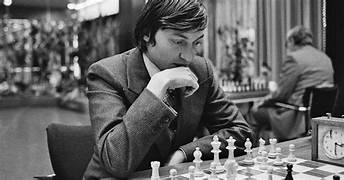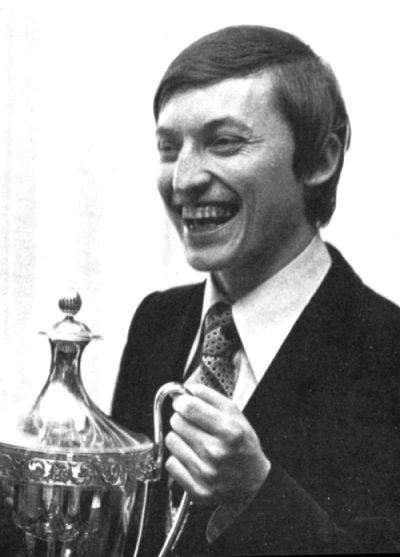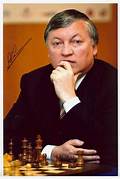 |
 |
 |
 |
Introduction
Anatoly Karpov, a name that resonates deeply within the chess community, is often celebrated as one of the greatest chess players of all time. Born on May 23, 1951, in Zlatoust, Russia, Karpov’s journey from a young prodigy in the Soviet Union to a world-renowned grandmaster encapsulates the essence of chess as a sport, art, and science. This blog delves into the life, career, and legacy of Anatoly Karpov, highlighting his remarkable achievements, iconic matches, and enduring influence on the game of chess.
Early Life and Introduction to Chess
Anatoly Karpov's affinity for chess was evident from a young age. Growing up in the industrial town of Zlatoust, Karpov was introduced to the game by his father at the age of four. His early talent did not go unnoticed, and by the age of nine, he was admitted to the prestigious chess school run by former World Champion Mikhail Botvinnik. This period under Botvinnik's tutelage was instrumental in shaping Karpov's strategic thinking and honing his skills.
Karpov’s progression in chess was rapid and impressive. He earned the title of Soviet National Master at the age of 15, and by 1969, he had won the World Junior Chess Championship. This victory not only cemented his status as a rising star but also earned him the title of International Master.
Ascending to the Pinnacle: World Chess Champion
The early 1970s marked Karpov’s ascent to the zenith of the chess world. In 1974, he won the Candidates Tournament, a significant step towards challenging for the World Championship. Karpov’s journey to the title was somewhat unconventional; he was awarded the title of World Chess Champion in 1975 when Bobby Fischer, the reigning champion, refused to defend his title under the conditions set by FIDE, the international chess federation. Despite the circumstances, Karpov’s dominance in subsequent years validated his claim to the title.
Karpov defended his title successfully in several World Championship matches, including his notable victories over Viktor Korchnoi in 1978 and 1981. His style of play, characterized by precise calculation, strategic depth, and a profound understanding of positional nuances, set him apart from his contemporaries.
The Legendary Rivalry: Karpov vs. Kasparov
No discussion of Anatoly Karpov's career is complete without mentioning his epic rivalry with Garry Kasparov. This rivalry, which spanned from the mid-1980s to the early 1990s, is often regarded as one of the greatest in sports history. The first match between Karpov and Kasparov in 1984-1985 was particularly dramatic and grueling. The match lasted for 48 games over five months without a decisive result, leading to its termination by FIDE due to the physical and mental exhaustion of the players.
Karpov and Kasparov faced each other in five World Championship matches, with Kasparov ultimately emerging as the dominant force. Despite losing his title to Kasparov in 1985, Karpov continued to perform at an elite level, securing numerous tournament victories and maintaining his status as one of the top players in the world.
Contributions Beyond the Board
Anatoly Karpov's influence extends far beyond his achievements on the chessboard. He has been an active ambassador for chess, promoting the game globally and advocating for its inclusion in educational curricula. Karpov has authored several books on chess strategy and his experiences as a professional player, contributing to the rich literature of the game.
In addition to his contributions to chess, Karpov has been involved in various philanthropic endeavors. He established the Karpov International School of Chess in Lindsborg, Kansas, and has supported numerous initiatives aimed at fostering the development of young chess talents worldwide.
The Karpov Legacy
Anatoly Karpov's legacy in chess is multifaceted. As a player, his record speaks volumes: over 160 first-place finishes in international tournaments, numerous accolades, and a reputation as one of the greatest strategic minds in the history of the game. His games are studied by enthusiasts and professionals alike for their instructional value and strategic brilliance.
Karpov’s influence is also evident in the broader chess culture. His rivalry with Kasparov brought unprecedented attention to the game, elevating its status and popularity. The matches between Karpov and Kasparov were not just contests of skill but also symbolized the broader ideological and cultural conflicts of their time, particularly the Cold War tensions between the Soviet Union and the West.
The Enduring Impact on Modern Chess
The impact of Anatoly Karpov on modern chess is undeniable. His approach to the game, characterized by meticulous preparation and a deep understanding of positional play, has influenced generations of players. Many contemporary grandmasters acknowledge Karpov's games as foundational to their own development.
Karpov’s strategic innovations and contributions to opening theory continue to be relevant. His work in the Caro-Kann Defense, the Nimzo-Indian Defense, and various other openings have left a lasting imprint on chess theory. Even today, players at all levels study Karpov’s games to gain insights into high-level strategic planning and positional play.
Conclusion
Anatoly Karpov’s career is a testament to the beauty and complexity of chess. From his early days as a prodigy in the Soviet Union to his reign as World Champion and his ongoing influence as an ambassador for the game, Karpov’s legacy is one of enduring excellence and profound impact. His strategic genius, competitive spirit, and contributions to the chess community have cemented his place as a true legend in the world of chess.
For those who seek to understand the depths of chess strategy and appreciate the game’s rich history, studying Anatoly Karpov's life and career offers invaluable insights. As we celebrate his achievements and reflect on his legacy, Karpov’s story continues to inspire new generations of chess players, reminding us of the timeless allure and intellectual challenge that the game of chess represents.